Condos/Apartments
April 11, 2023
Downsizing: Inside A Couple’s Joyful & Art-Filled Condo
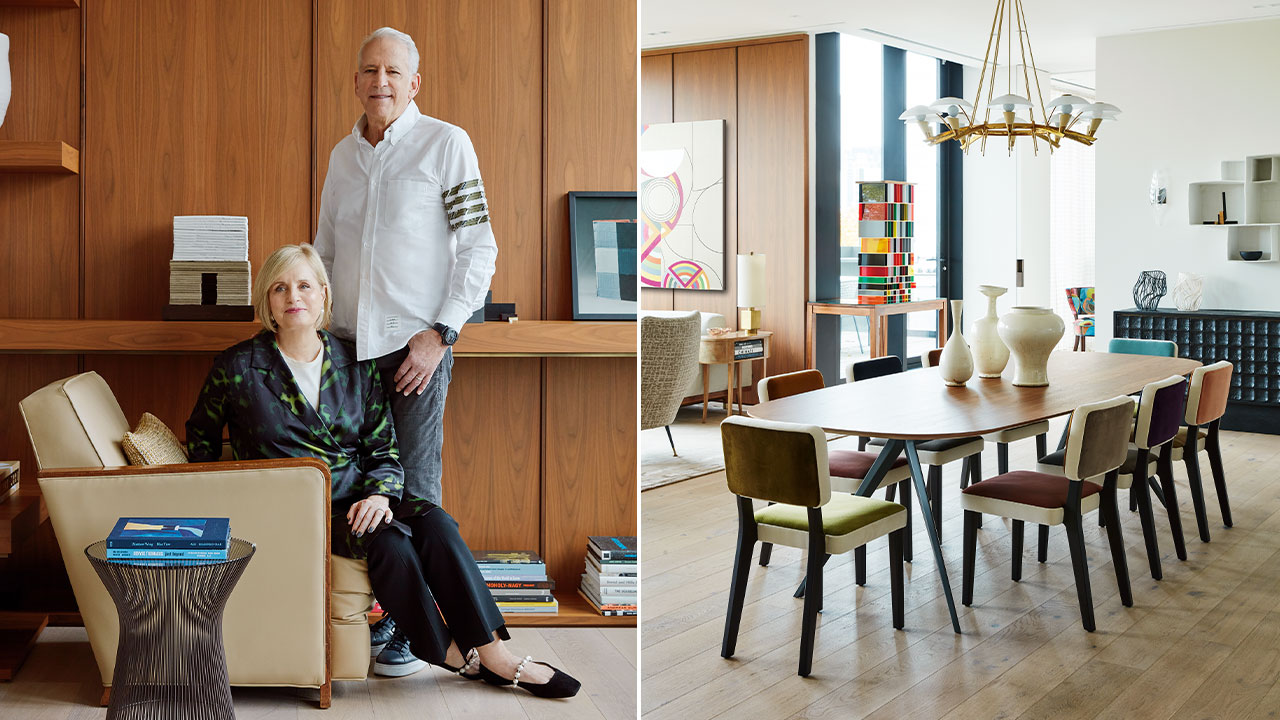
The gruelling business of purging and packing a lifetime’s worth of possessions is not something you normally do more than once. And yet Debra and Barry Campbell did just that. “The move to our previous apartment was more of a flattening,” says Debra from her new living room. “The square footage of our last apartment was similar to our previous family home, except all on one level. The move to this apartment was when the real downsizing happened.”
Step inside the couple’s calm and collected space below!
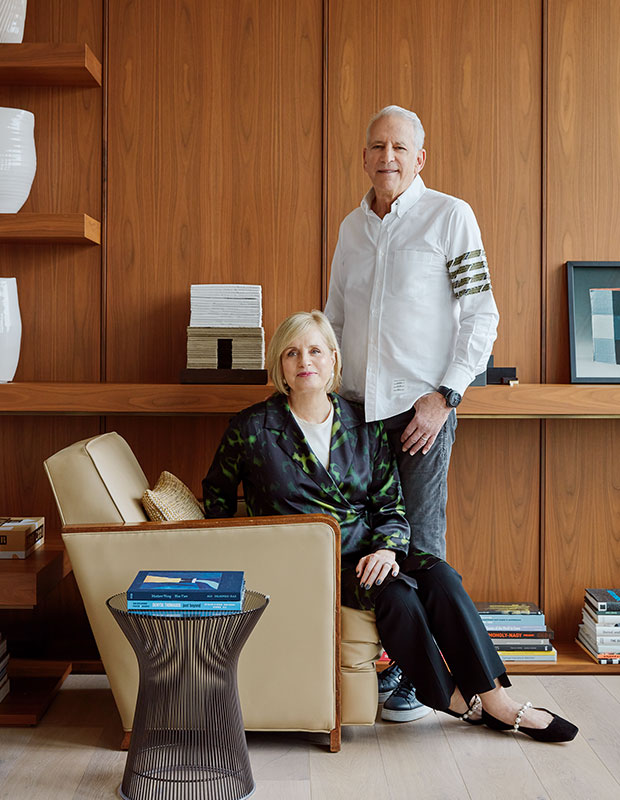
Their former home, a 4,700-square-foot apartment in midtown Toronto, was featured in — and on the cover of — our 2016 Trends issue. That custom-built residence was a passion project between the couple and their longtime designer Alex Chapman.
The Campbells, who had been empty-nesters for some time, were happy there. Their adult sons (new parents themselves) were living in New York City and Singapore, respectively, and Debra and Barry always knew that they would eventually downsize when the right opportunity presented itself. “We’re not the type of people to buy off plans,” says Barry. “We wanted a place with no visible columns, full-height windows and unobstructed views,” adds Debra.
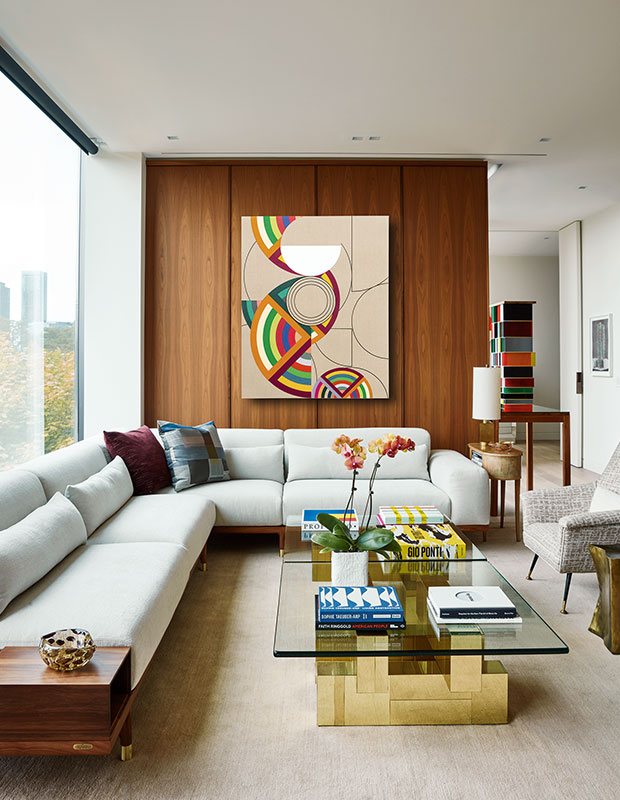
In 2020, an agent they knew reached out because he thought they might be interested in one particular space, which had just come on the market. The 2,500-square-foot apartment was in a redeveloped mixed-use building, had a dynamite location and, as they discovered, an almost ideal interior. “It ticked off many of the boxes we were looking for: exposure, layout, full-height windows and 10-foot ceilings,” says Debra. Barry, who’s had a long interest in architecture and design, sits on the Board of Trustees at the Canadian Centre for Architecture in Montreal. Debra, a passionate supporter of contemporary visual arts who’s served on several arts boards, is equally design-savvy.
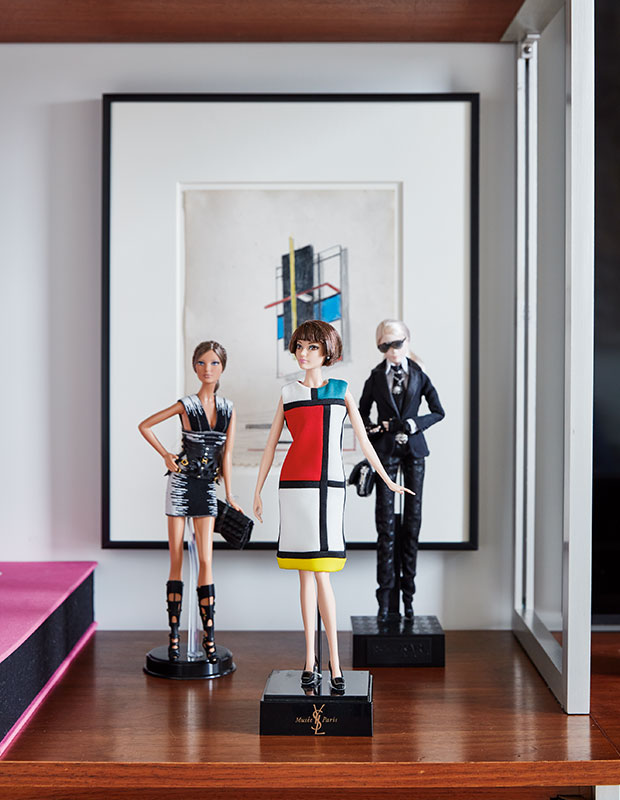
The couple’s shared style is reflected in the art and furniture they’ve collected over decades. Debra also has a collectible-Barbie habit. “I like my Barbies in designer daywear only, not ball gowns,” she says. She points to the Barbie wearing an Yves Saint Laurent dress in Mondrian’s primary colors. In fact, a number of works, art and architectural pieces relate to Mondrian throughout the apartment.
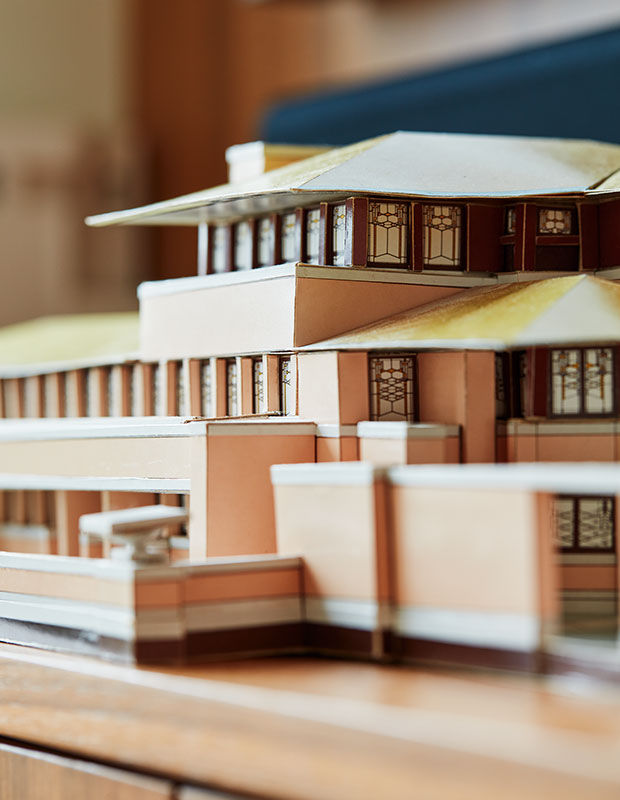
Barry’s collection of toys, models and books includes many related to early- and mid-century architecture. He keeps models of structures by architects Adolf Loos, Gerrit Rietveld, Mies and Frank Lloyd Wright.
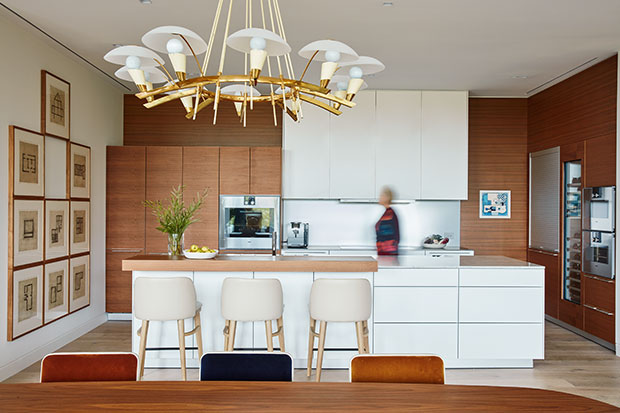
The lot — together with a mix of photography, ceramics and painting — now lives wonderfully inside their new suite. The high-ceilinged apartment has two terraces, two and a half baths, a principal bedroom, guest room, den-office and — a change for neatnik Debra — an open kitchen by Bulthaup.
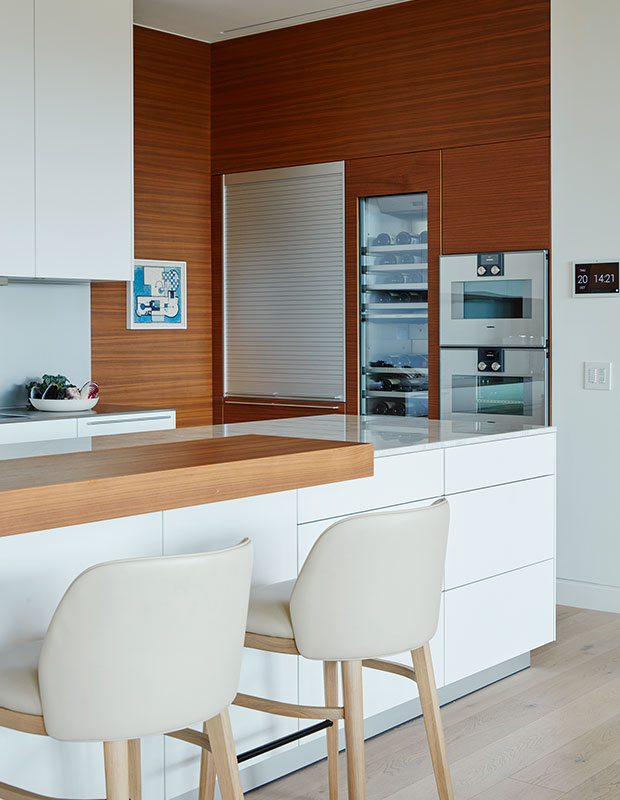
For Debra, an open kitchen required learning to function a bit differently, and now she enjoys it. This one beautifully blends in with the living area, and features a head-turning installation, “Homes I Made/A Life in Nine Lines Compass” by the late printmaker Zarina.
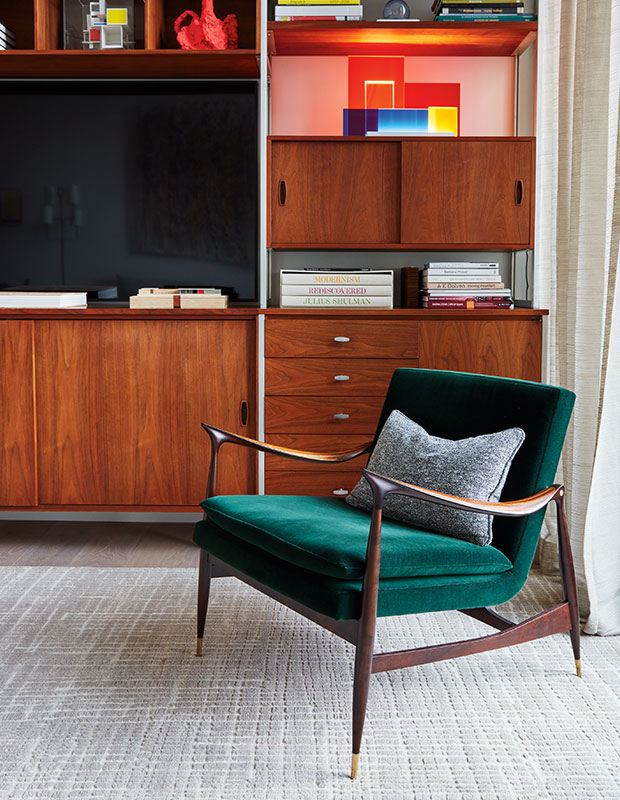
The 1950s Paul McCobb wall unit was in the couple’s previous home — and they were delighted it fit in to their new den-office. “It’s very functional and has lots of storage,” says Debra Campbell. The chair is a reissue of one designed in 1959 by Brazilian architect Jorge Zalszupin.
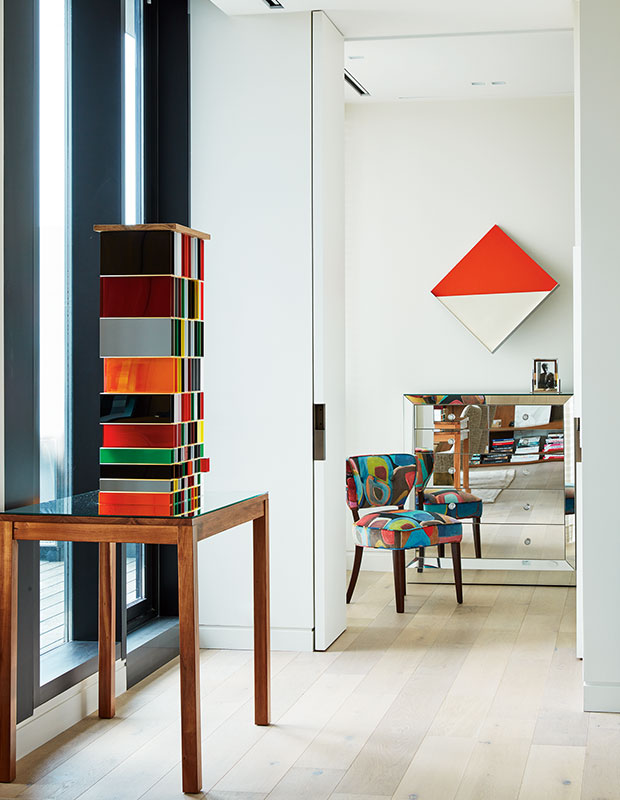
When they first toured the apartment, the marble vestibule, which closes off with pocket doors, caught their attention: it offered a sense of arrival. The floating wall centred on the doorway that divides the entry from the den is perfect for art, and on the flip side, another opportunity.
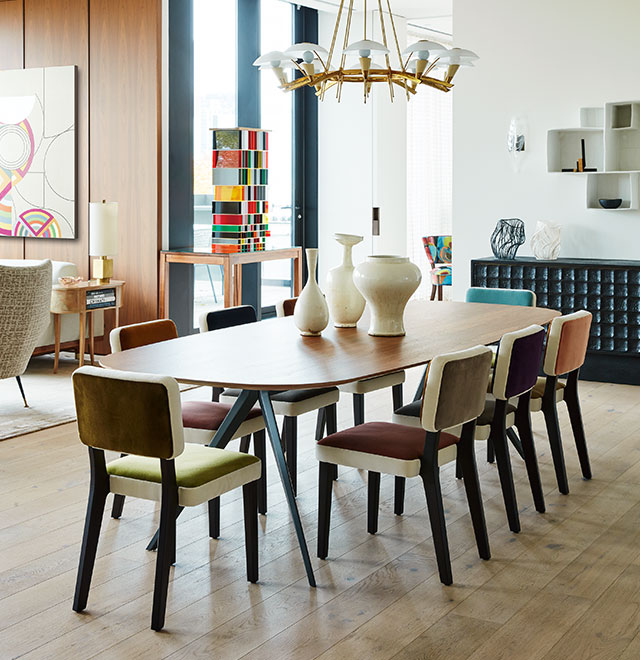
The couple refused to part with the tables. “We looked at other iterations for the room and we said, nope, we have to fit them in,” says Debra. Ditto for the leggy Tommi Parzinger side tables and a 1960s Italian fixture with spiky arms over the dining table.
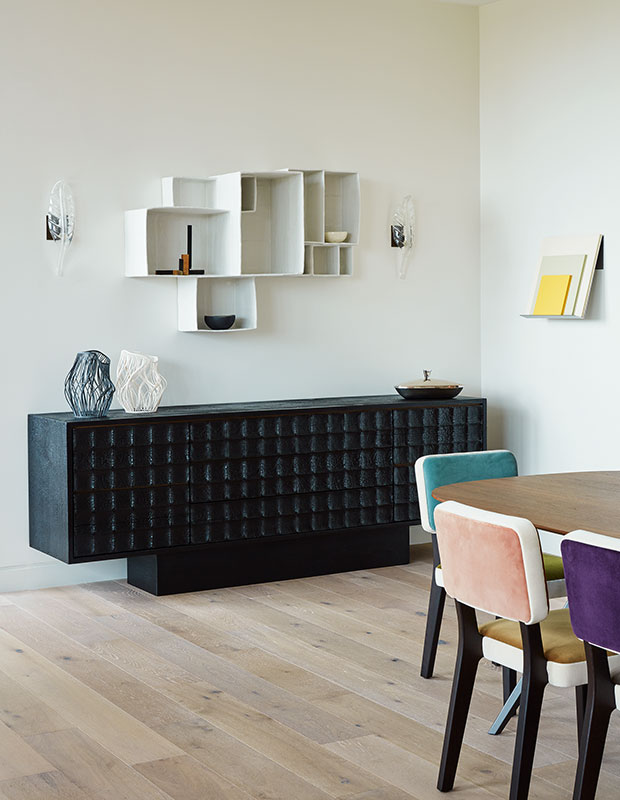
Simple geometry and forms were employed so as not to fight with the art, as seen in the shou sugi ban console and boxy “A-Z Aggregated Stacks #18” just above by artist Andrea Zittel.
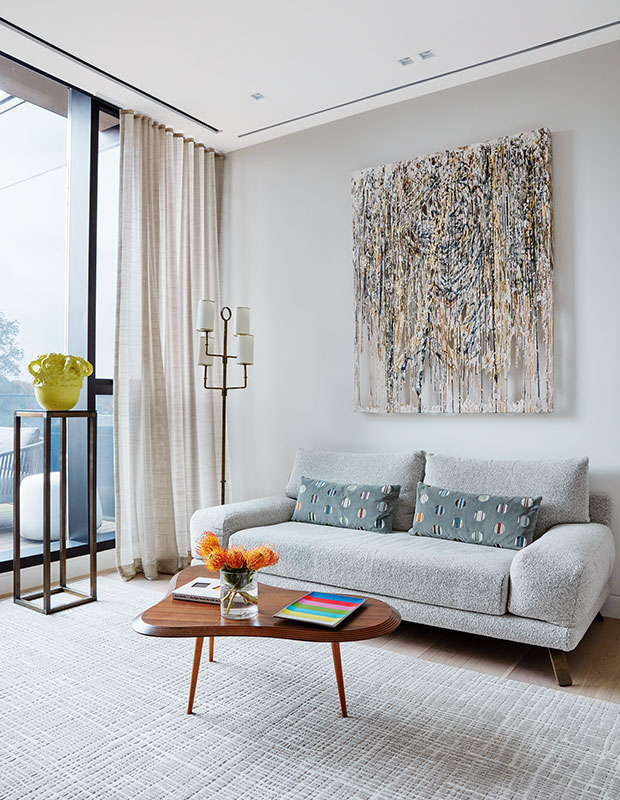
After they bought the place, designer Neil Jonsohn, a creative principal of the firm U31, was recruited for the project, and he brought in general contractor Andrea Zuccarini of the Arcademia Group. “We had a great layout to work with, and my role was to create something that let their collection speak,” says Neil. “I didn’t want the backgrounds of the interiors to overpower their art and furniture pieces. The process with Debra and Barry was remarkably discussive. The exchange of ideas went both ways.”
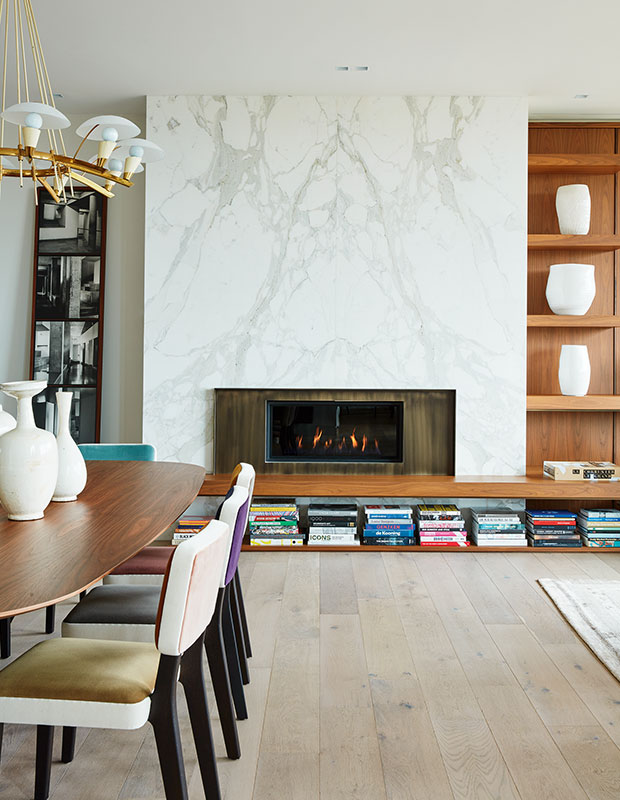
While the apartment’s bones were excellent, Neil, Debra and Barry made modifications to improve aesthetics and function. “The firebox was small for the size of the marble build-out,” says Neil. “To give it more presence, we created a bronze metal surround and a walnut ledge that floats below.” The millwork is bookended on both walls, and echoes of it appear in the kitchen and closet doors in the foyer.
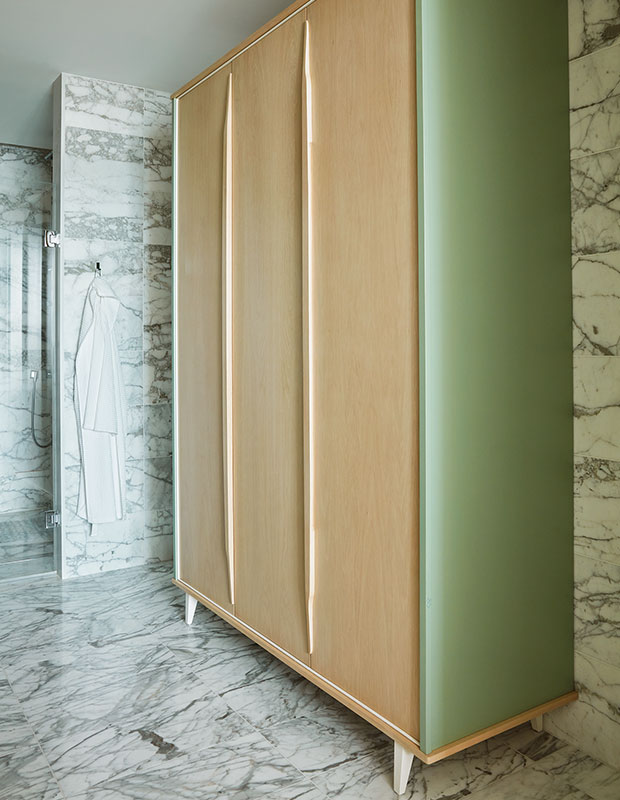
The designer also removed the walk-in closet in the guest room and replaced it with a linear closet, gaining an additional four feet, pushed out a wall from the bedroom to the hall to make room for a built-in, and removed the tub in the principal bathroom to accommodate a wardrobe that Neil and Barry designed (the walk-in closet wasn’t large enough to share).
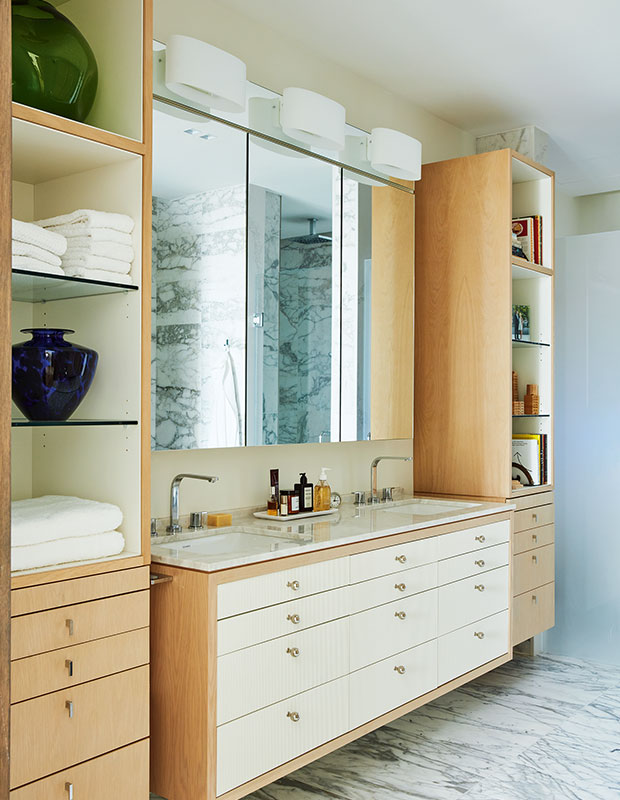
The new suite, with its beautifully curated art, has the immaculate feeling of a gallery. “Credit needs to be given to Debra and Barry’s art consultant Rui Amaral for his help in rehanging existing works,” says Neil. “There’s playfulness or whimsy in the curation, and there’s great comfort and beauty in the imperfection.” Vivid vessels by New York ceramicist Beverly Semmes “look like Play-Doh, handprints and all,” he adds, while the living room’s 1970s low cityscape coffee tables by Paul Evans are beautiful but aged.
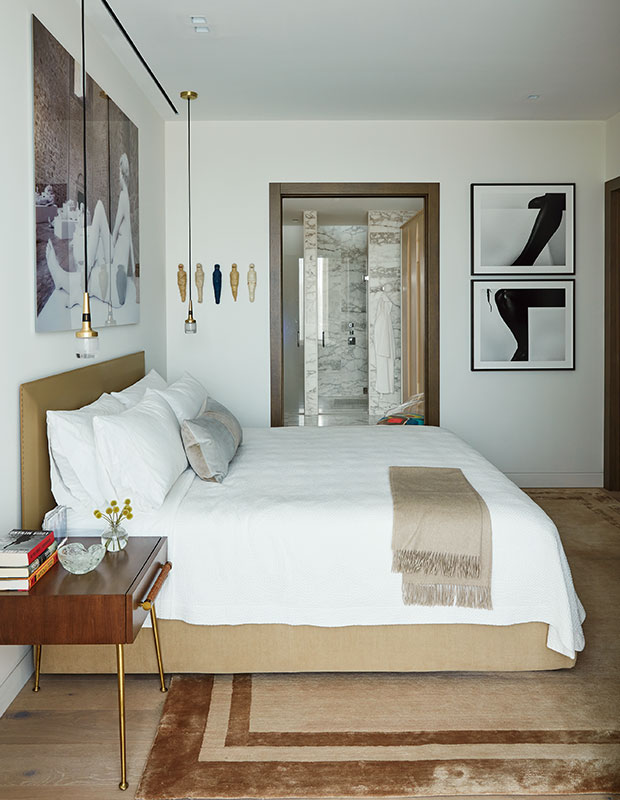
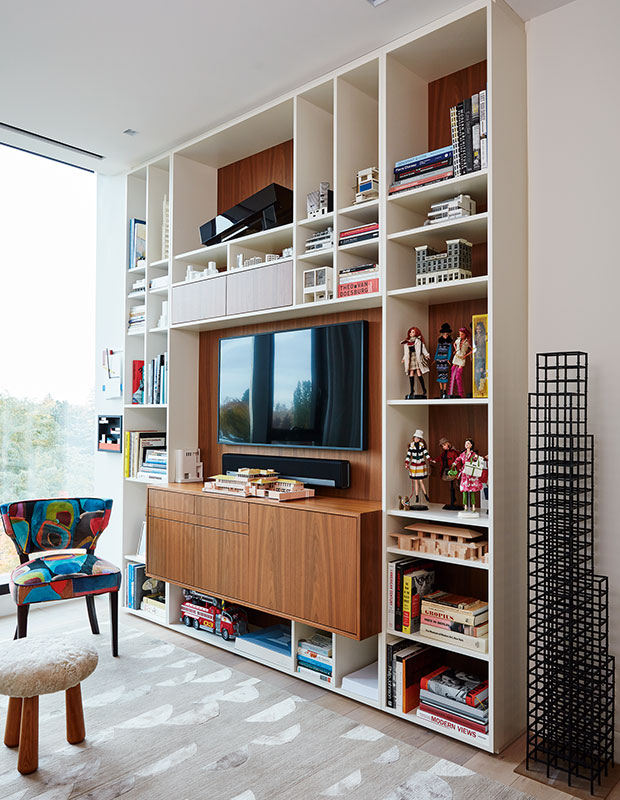
Paring down their beloved former apartment had its bittersweet moments (one large art installation simply couldn’t fit in the new space), but editing is rewarding. “It’s more intimate, and many of the works can be appreciated in a new way,” says Barry. “This is a joyful space.”
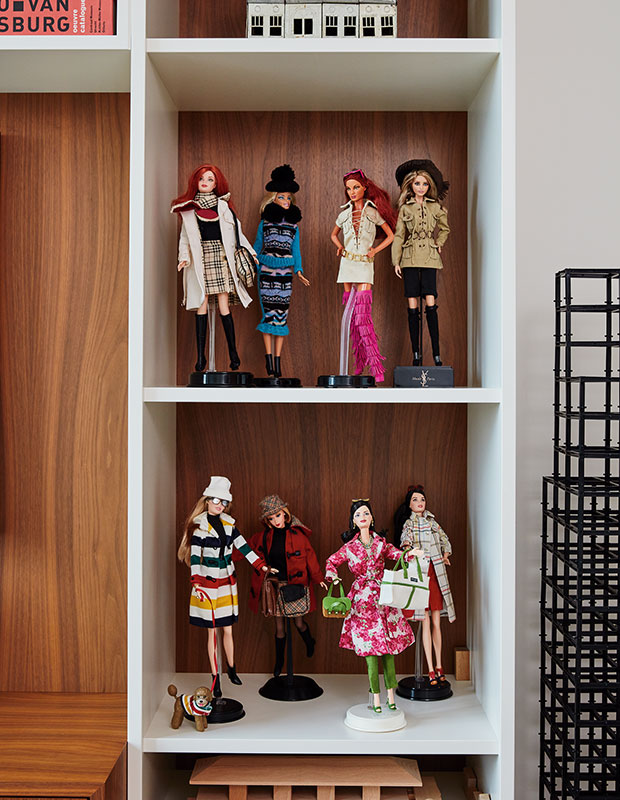
Debra’s limited-edition Barbies strike a pose, including the Hudson’s Bay Company Collection Barbie showcasing the famous blonde with her pet poodle.
Stacey Brandford
Neil Jonsohn